Vietnam, a land where ancient traditions dance with modern energy, invites Indian travelers to delve deeper than stunning landscapes and bustling cities. Discover the heart of Vietnamese culture through its vibrant Vietnam’s Festive Calendar. These celebrations, deeply rooted in the Lunar Calendar and rich history, offer a unique lens to experience the soul of this fascinating country. Planning your journey around these traditional celebrations and public holidays transforms a simple visit into an unforgettable immersion into Vietnamese life.
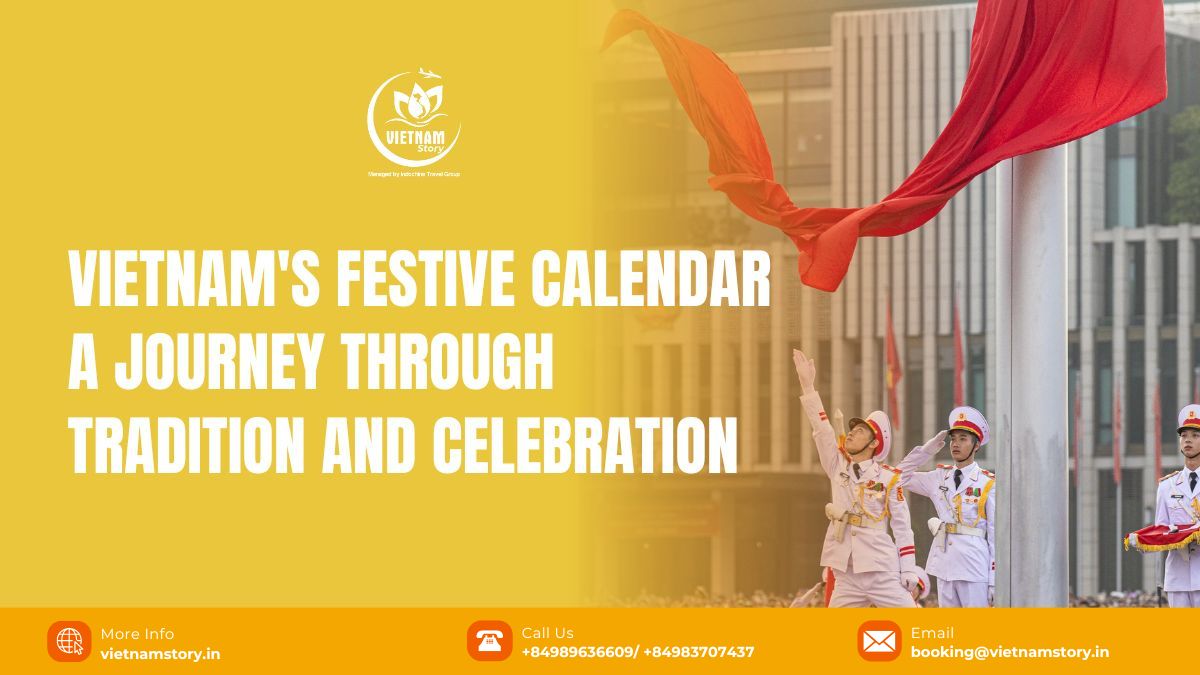
Understanding Vietnam’s Public Holidays & Key Festivals
Vietnam’s holidays are a mix of solemn historical commemorations and joyous cultural festivities. Many are based on the Lunar Calendar, meaning their dates change yearly according to the Gregorian calendar used in India. Knowing these dates is crucial for planning your Vietnam travel itinerary.
1. Tet Nguyen Dan (Lunar New Year) – The Heartbeat of Vietnam
- Type: Largest and most important traditional festival & public holiday.
- Significance: Celebrates the arrival of spring, family reunion, ancestor veneration, and renewal.
- Timing Basis: Lunar Calendar.
- Dates: First day of the first lunar month (e.g., Jan 29th, 2025; Feb 17th, 2026). Official holiday period lasts about 7 days.
- Activities: Family gatherings, visiting relatives, decorating homes with peach/apricot blossoms, giving lucky money (li xi), fireworks, temple visits (e.g., Ngoc Son Temple, Quan Su Pagoda in Hanoi), dragon dances, special foods like Banh Chung.
- Atmosphere: Extremely festive, colourful, and exciting, especially in the days leading up to Tet Eve. Major cities like Hanoi and Ho Chi Minh City can be quieter as people return to hometowns, but offer unique celebrations like parties at Hanoi Opera House.
- Traveler Note: This is peak travel time for locals. Expect crowded transport, higher prices, and many business closures. Book flights and accommodation 2-3 months in advance. It’s a great time for cultural immersion if planned carefully.
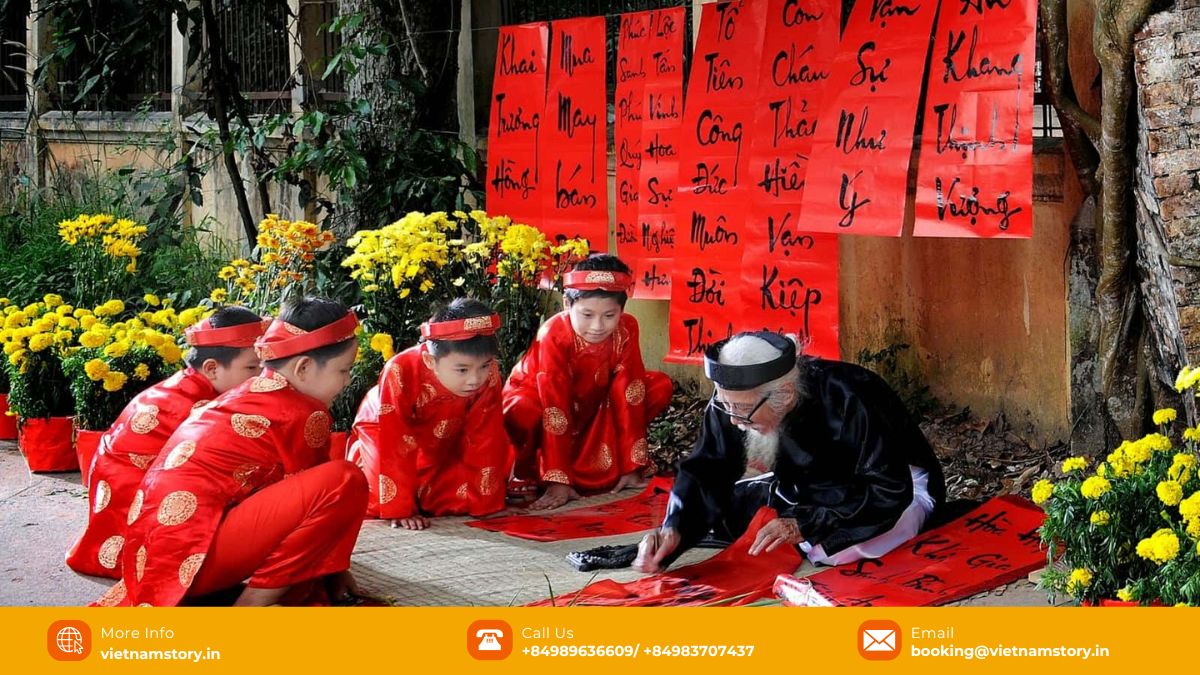
2. Hung Kings Temple Festival – Honoring National Origins
- Type: National public holiday commemorating Vietnam’s legendary founders.
- Significance: Pays respect to the Hung Kings, the first rulers and founders of the Vietnamese nation, fostering national pride and connection to ancestors.
- Timing Basis: Lunar Calendar.
- Date: 10th day of the 3rd lunar month (e.g., April 7th, 2025). Festivities often run from the 8th to 11th day.
- Location: Main ceremony at Hung Temple, Viet Tri City, Phu Tho province. Celebrated nationwide at other Hung King temples.
- Activities: Pilgrimages to the temple, incense offering ceremonies, processions, releasing lanterns into the sky (eve of festival), traditional music and dance performances, folk games.
- Atmosphere: Solemn yet festive, showcasing deep respect for history and heritage.
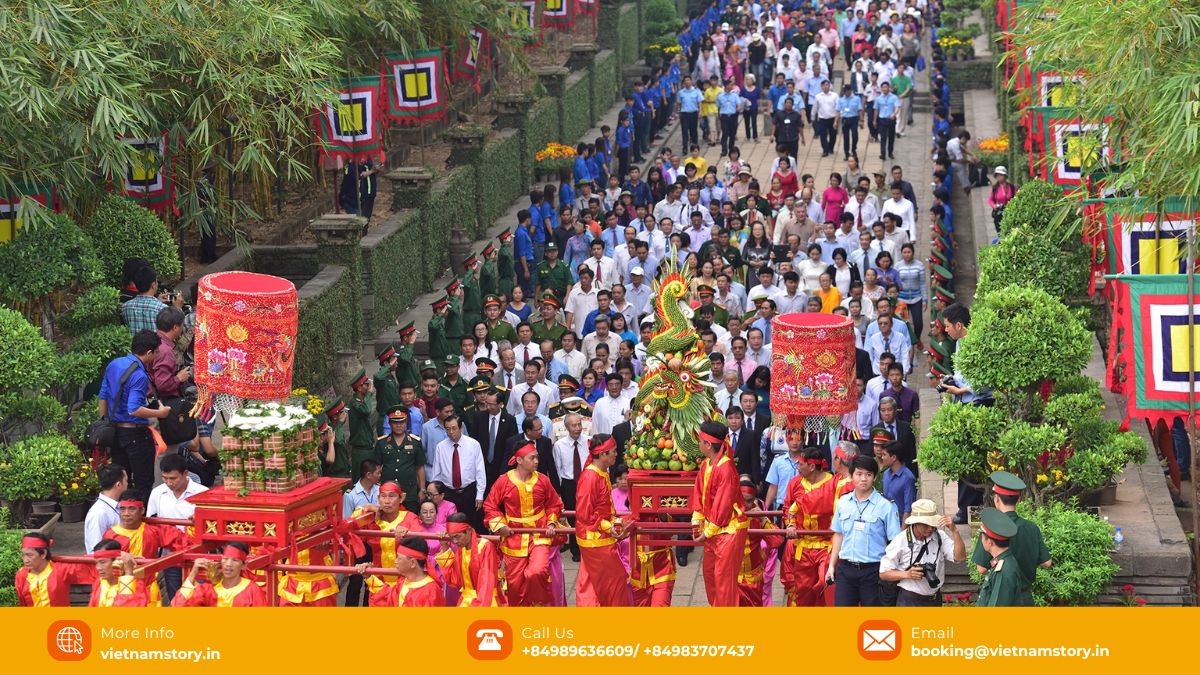
3. Reunification Day (Ngày Thống Nhất) – Celebrating Unity
- Type: National public holiday.
- Significance: Commemorates the liberation of South Vietnam and the reunification of North and South Vietnam on April 30, 1975, ending the Vietnam War.
- Timing Basis: Gregorian Calendar.
- Date: April 30th annually.
- Activities: Parades (especially in major cities like Hanoi and Ho Chi Minh City), flag displays, banners, fireworks (e.g., international displays in Da Nang often coincide), cultural performances, historical commemorations. People often travel during the combined holiday with Labour Day.
- Atmosphere: Patriotic, celebratory, and reflective.
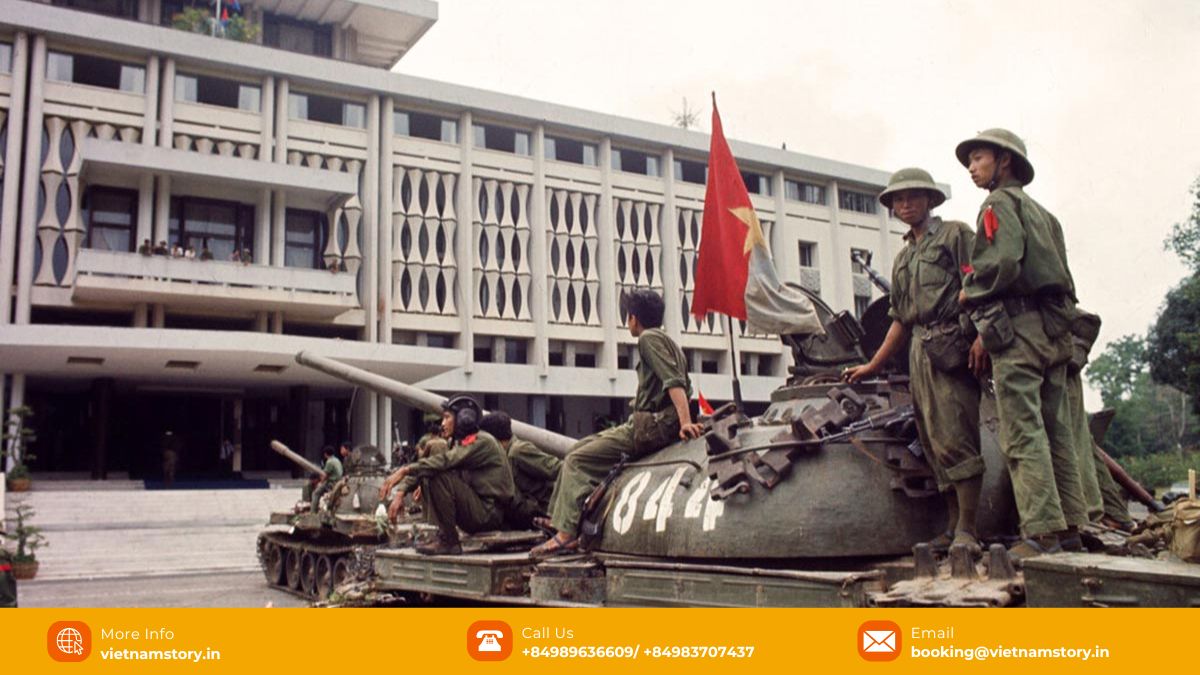
4. National Day (Independence Day – Ngày Quốc Khánh) – Celebrating Freedom
- Type: National public holiday.
- Significance: Marks Vietnam’s declaration of independence from French colonial rule by President Ho Chi Minh on September 2, 1945, in Ba Dinh Square, Hanoi.
- Timing Basis: Gregorian Calendar.
- Date: September 2nd annually.
- Activities: Large parades (especially in Ba Dinh Square, Hanoi), flag hoisting ceremonies, fireworks in major cities, streets adorned with flags and posters of Ho Chi Minh, visits to historical sites like Ho Chi Minh Mausoleum and Independence Palace (Ho Chi Minh City).
- Atmosphere: Highly patriotic, grand celebrations, national pride.
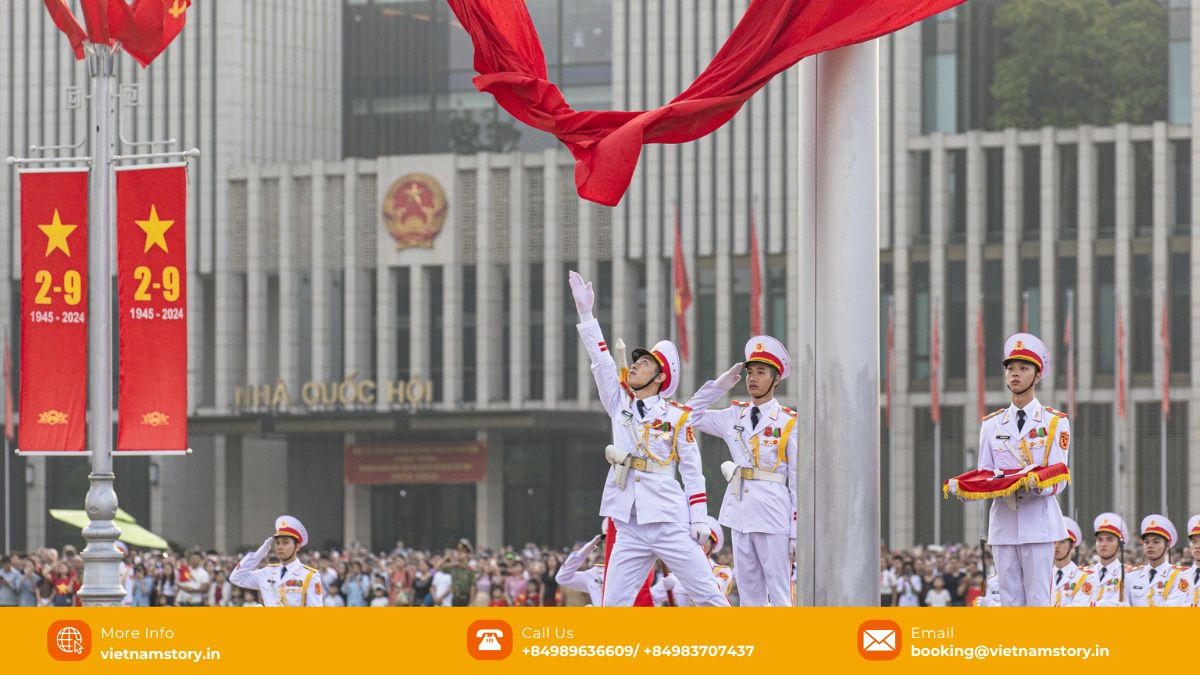
5. Mid-Autumn Festival (Tet Trung Thu) – A Joyful Celebration for Children
- Type: Traditional cultural festival.
- Significance: Celebrates the harvest, the full moon, and primarily, children.
- Timing Basis: Lunar Calendar.
- Date: 15th day of the 8th lunar month (e.g., October 6th, 2025).
- Activities: Children carry colourful lanterns (star-shaped are traditional), lion dances (Múa Lân) parade through streets, families gather to eat mooncakes (Banh Trung Thu) and fruits while watching the moon, distributing toys and masks to children.
- Locations: Celebrated nationwide. Hoi An Ancient Town offers a particularly magical experience with lanterns floating on the Thu Bon River. Hang Ma Street in Hanoi is bustling with festival goods.
- Atmosphere: Joyful, colourful, family-oriented, magical, especially at night.

6. International Workers’ Day (Ngày Quốc tế Lao động)
- Type: Public holiday.
- Significance: Celebrates workers’ rights and achievements.
- Timing Basis: Gregorian Calendar.
- Date: May 1st annually.
- Activities: Official events, parades in some urban areas. Often combined with Reunification Day (Apr 30th) for a longer holiday period, leading to increased domestic travel.
- Traveler Note: Be aware of potential transport crowds and higher demand for accommodation due to the extended holiday break for locals.
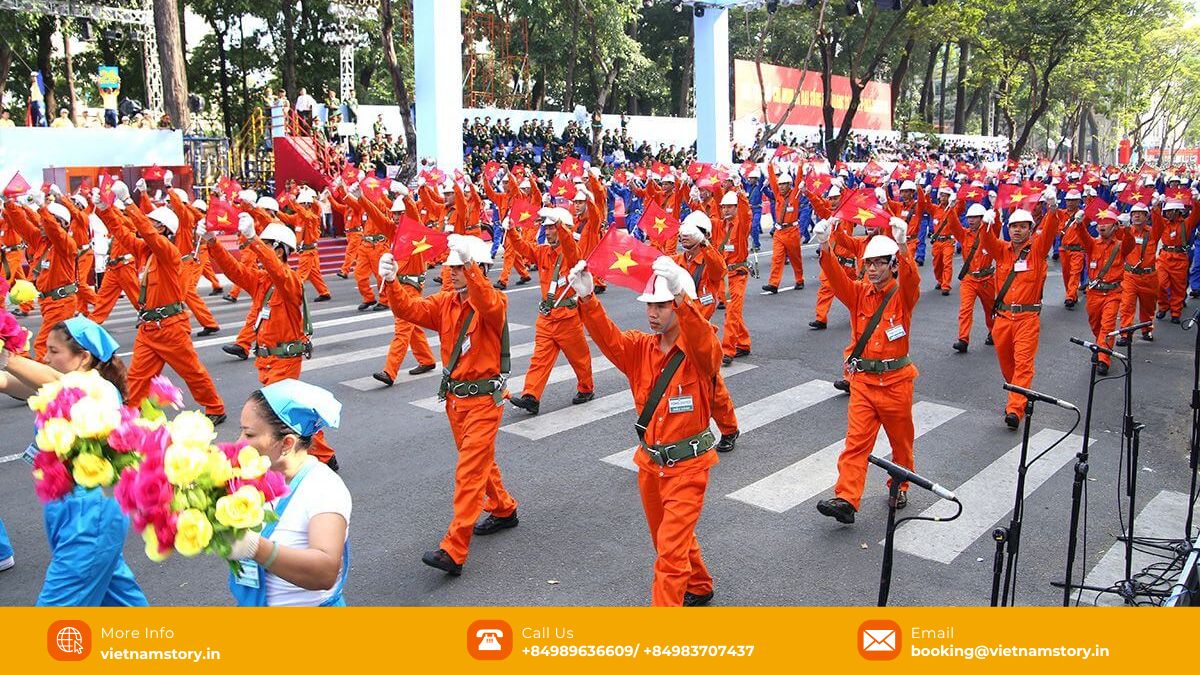
More Unique Vietnamese Festivals & Cultural Events
Beyond the major public holidays, Vietnam’s calendar brims with unique regional and traditional festivals offering deeper cultural insights:
- Lim Festival (Bac Ninh Province): Held on the 12th-13th day of the 1st lunar month (e.g., Jan 31 – Feb 2, 2025). Famous for Quan Ho folk singing, a UNESCO Intangible Heritage, performed by singers in traditional costumes on dragon boats. Features traditional games like bamboo swings and wrestling. A short drive from Hanoi.
- Hue Festival & Hue Craft Village Festival (Hue City): Takes place alternately each year, usually over a week in late April/early May (e.g., Mar 25 – Apr 7, 2025; specific dates vary). Showcases Hue’s imperial history, royal court music, Ao Dai fashion shows, traditional crafts, international art performances, and unique cuisine.
- Perfume Pagoda Festival (Chua Huong, near Hanoi): A major Buddhist pilgrimage lasting from the 6th day of the 1st lunar month to the end of the 3rd lunar month (e.g., Feb 3 – Apr 27, 2025 or Feb 3 – May 1, 2025 *dates can vary slightly based on source*). Involves scenic boat trips on the Yen Stream and climbing to sacred caves for prayers.
- Ghost Festival / Wandering Souls Day (Tet Trung Nguyen / Vu Lan): 15th day of the 7th lunar month (e.g., September 6th, 2025). A significant time for ancestor veneration and showing filial piety (Vu Lan). Believed spirits visit earthly homes. Families make offerings at graves and pagodas (especially atmospheric in Hue), burn paper votives, and offer food for wandering souls.
- Hoi An Lantern Festival (Hoi An): Held monthly on the 14th day of each lunar month. The Ancient Town turns off electric lights, relying on colourful silk lanterns and candles, creating a magical, romantic atmosphere. Features traditional music, games, and food stalls.
- Khmer Festivals (Mekong Delta – Soc Trang, An Giang): Showcasing Vietnam’s ethnic diversity. Includes Chol Chnam Thmay (Khmer New Year, mid-April, e.g., Apr 13-15, 2025), Sene Dolta (Ancestor Commemoration, late Aug/early Sep lunar, e.g., Oct 20-21, 2025, features bull racing in An Giang), and Oóc Om Bóc (Moon Thanksgiving & Ngo Boat Race, 14th day of 10th lunar month, e.g., Dec 3rd, 2025 in Soc Trang).
- Xến Xó Phốn Festival (Mai Chau): Celebrated by the White Thai ethnic group in the 4th lunar month (approx. April/May). A unique ritual involving songs and offerings to pray for rain and a prosperous harvest.
- Other Dates to Note:
- New Year’s Day (Gregorian): Jan 1st (Public Holiday, countdown parties).
- Tet Han Thuc (Cold Food Festival): 3rd day of 3rd lunar month (e.g., Mar 31, 2025). Features eating sweet sticky rice balls (banh troi, banh chay).
- Buddha’s Birthday (Vesak): 8th day of 4th lunar month or full moon of 4th/5th lunar month (e.g., May 12th, 2025 or May 6-8, 2025 *date calculation can vary*). Celebrated at pagodas nationwide, especially vibrant in Hoi An.
- Doan Ngo Festival (Insect Killing Festival): 5th day of 5th lunar month (e.g., May 31st, 2025). Eating specific foods like fermented sticky rice and certain fruits is believed to ward off illness.
- Christmas: Dec 24th/25th. Increasingly popular, especially in cities, but not a public holiday.
- Women’s Days: International Women’s Day (Mar 8th) and Vietnamese Women’s Day (Oct 20th). Days for honouring women.
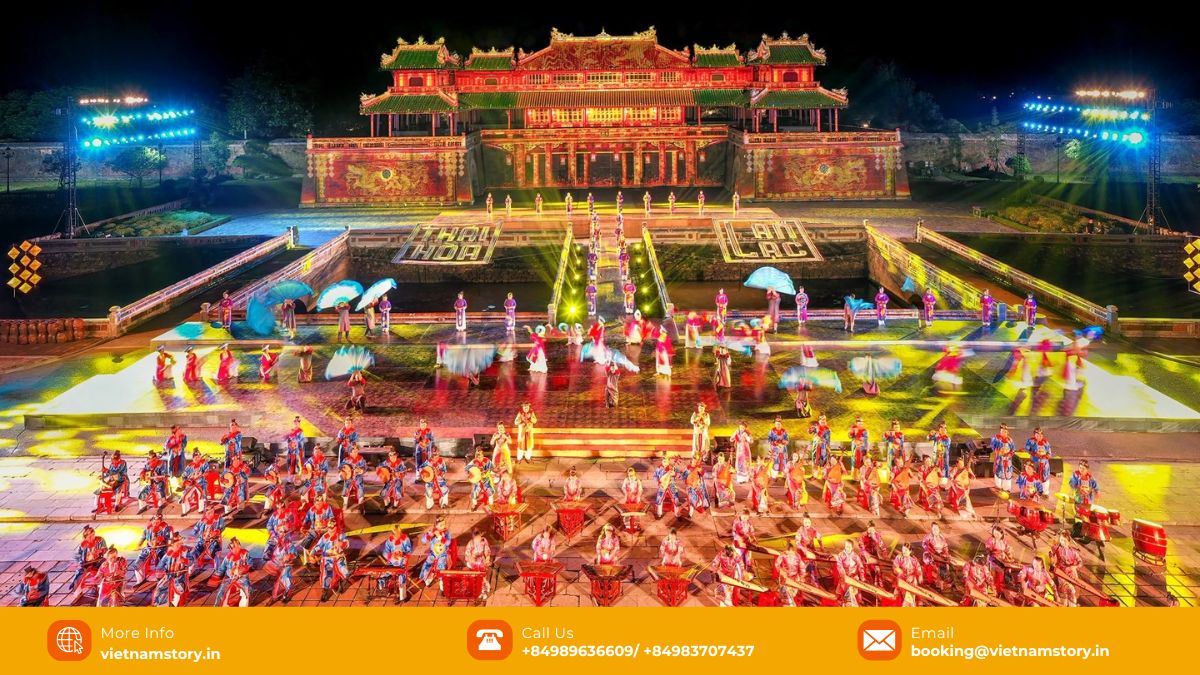

Tips for Indian Travelers Experiencing Vietnam’s Festivals
- Plan & Book Ahead: Research festival dates impacting your travel period. Book flights, trains, buses, and accommodations well in advance, especially for Tet, Reunification/Labour Day holidays, and major events like the Hue Festival. Prices rise significantly during these times.
- Transportation Expectation: Expect crowded airports, train stations, and buses during major holidays. Factor in potential delays. Consider flying between distant cities if traveling during peak times.
- Business Closures: Many shops, restaurants, and even tourist sites may close or have limited hours during Tet (especially the first few days). Plan accordingly, perhaps stocking up on essentials or choosing hotels with dining options.
- Cultural Respect: Dress modestly when visiting temples, pagodas, or attending solemn ceremonies (cover shoulders and knees). Ask permission before taking photos of people, especially during rituals.
- Embrace the Chaos & Joy: Festivals can be crowded and noisy, but they are also incredibly vibrant and welcoming. Engage respectfully with locals, try traditional foods, enjoy the performances, and soak in the unique atmosphere.
- Flexibility: Be prepared for unexpected changes or variations in schedules. A flexible attitude will enhance your experience.
READ MORE: Exploring Vietnam: A Transportation Guide for Indian Tourists
Conclusion: Weave Vietnam’s Festivals into Your Journey
Exploring Vietnam’s Festive Calendar offers Indian travelers more than just sightseeing; it’s an invitation to connect with the heart and soul of Vietnamese culture, traditions, and history. From the nationwide celebrations of Tet Nguyen Dan to the unique regional festivities like the Lim Festival or Oóc Om Bóc, each event provides a vibrant thread in the rich tapestry of Vietnamese life. By understanding these celebrations and planning accordingly, you can transform your trip into an unforgettable cultural immersion. Let the rhythm of Vietnam’s festivals guide your adventure and create memories that last a lifetime.
